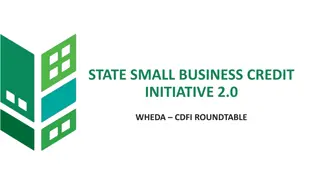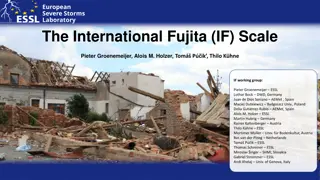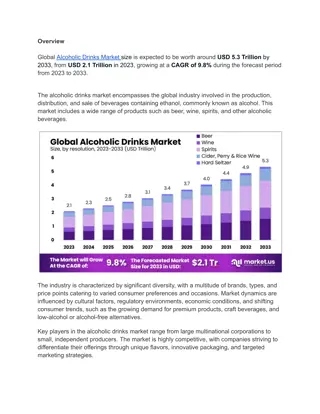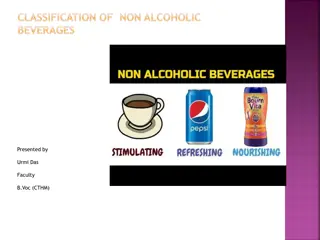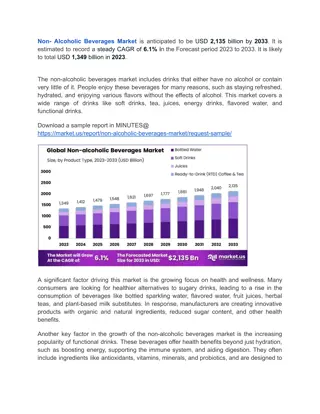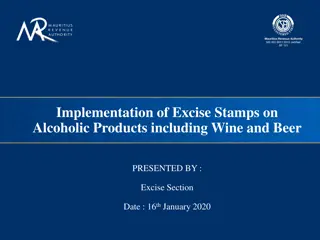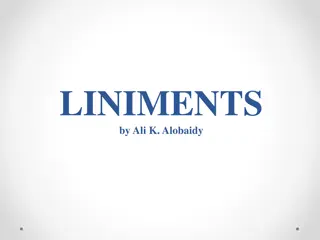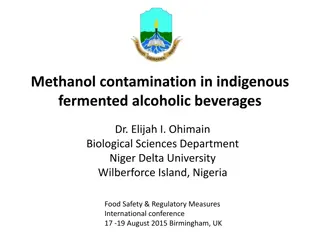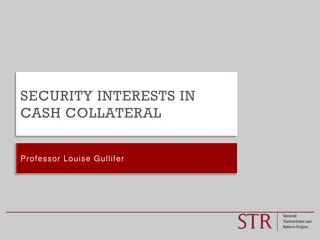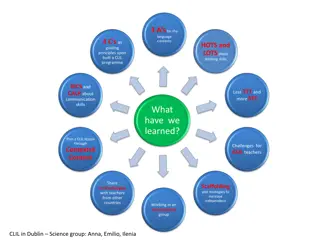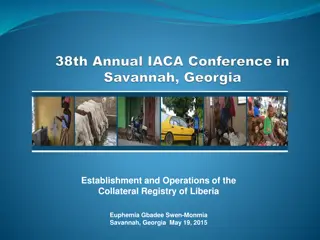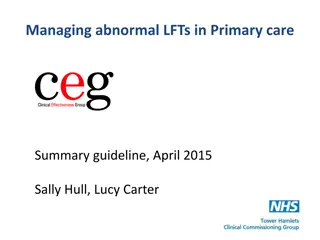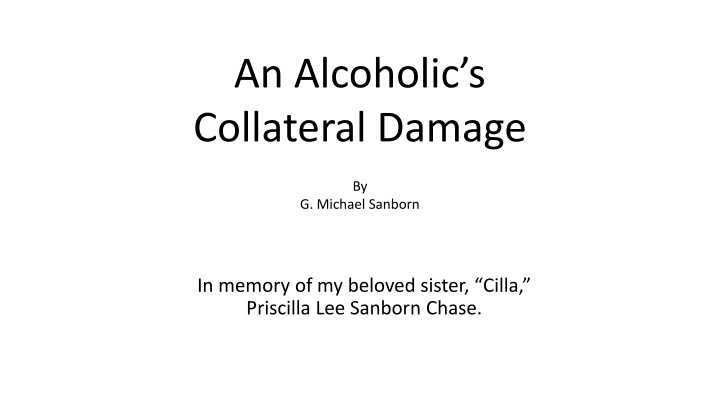
Childhood Trauma and Development Challenges
Explore the impact of early childhood experiences on development, from trust-building in preschool years to socialization in grade school. Uncover the damaging effects of unpredictable caregivers, abuse, and lack of parental supervision in California. Gain insight into the journey of overcoming collateral damages and transitioning to adulthood with resilience.
Uploaded on | 1 Views
Download Presentation

Please find below an Image/Link to download the presentation.
The content on the website is provided AS IS for your information and personal use only. It may not be sold, licensed, or shared on other websites without obtaining consent from the author. If you encounter any issues during the download, it is possible that the publisher has removed the file from their server.
You are allowed to download the files provided on this website for personal or commercial use, subject to the condition that they are used lawfully. All files are the property of their respective owners.
The content on the website is provided AS IS for your information and personal use only. It may not be sold, licensed, or shared on other websites without obtaining consent from the author.
E N D
Presentation Transcript
An Alcoholics Collateral Damage By G. Michael Sanborn In memory of my beloved sister, Cilla, Priscilla Lee Sanborn Chase.
Contents Earliest, Preschool Years California, Early Grade School Return to Vermont, Middle Grade School Years Later Grade School Years Junior High School years High School Transitioning to College and Adulthood Collateral Damages 6 23 37 63 101 131 157 162
Earliest, Preschool Years Expected Development Children develop trust in their caregivers Open displays of affection Rites of passage are celebrated They learn personal control and independence Children learn language and the power it has with others Play and imagination Praise and disapproval from parents provides guidance Children feel safe with parental control Learning power and control over environment
Earliest, Preschool Years Damaged Development Unpredictable caregivers Mother dominated but often unavailable Overreactive and demanding Abusive (Slapping head, pinching, pulled hair, kneeling for hours) Father did some memorable positive activities Parentification Responsible for younger siblings Had no control over environment Intense sibling rivalry Premature responsibilities Verbal and physical abuse was a constant threat Few rewards Rites of passage were recognized but not celebrated Did not attend friends celebrations No open displays of affection Constant disapproval
California, Early Grade School Expected Development Language development Greater control over environment Sense of purpose Imagination Intuition Socialization
California, Early Grade School Damaged Development Increased parentification Responsible for younger siblings Beginning to care/serve parent No mentoring to develop social skills Role models were to mimic classmates Increased family isolation Rites of passage were not recognized, no birthday parties, etc. Lack of parental supervision increased risk of serious harm Frequent moves increased instability Things will be better when.. spoken more frequently
Return to Vermont, Middle Grade School Years Expected Development Increased language skills Reading, writing, and orally Conceptual development Learning about time, space, and quantities Increased autonomy Success bring competency Parental guidance, encouragement, and validation
Return to Vermont, Middle Grade School Years Damaged Development Notable decline in social status Increased isolation and abuse to maintain control Greater isolation Protected alcoholic Maintained control over children Family identity dominated by alcoholic, no individual identity development Less parental guidance for skills development My math skills were better than my mother s Children had increased caregiver responsibilities without the necessary autonomy Fewer family financial resources as alcohol consumption increased Brief, unsuccessful attempt to join a peer activity, cub scouts Father was intermittently absent, being driven out
Later Grade School Years Expected Development Concrete thought Continued development of social and academic skills Peer activities Sense of competency from successes Parental guidance and encouragement
Later Grade School Years Damaged Development Physical abuse continued with greater physical force Verbal abuse was relentless My father made a few attempts to involve me in peer sports but provided little guidance Father was increasingly absent Promises made and not kept Mother blamed father for social decline Children responsible for housekeeping, which declined rapidly Personal hygiene declined, months without water Things will be better when improvement was brief, followed by rapid and greater decline
Junior High School Years Expected Development Concrete thought Forming abstract thinking and reasoning Strategic planning Personal control over self and environment Developing personal ethics and integrity Socializing and social skills
Junior High School Years Damaged Development Father now completely absent Learning that peers live differently Mother increases isolation efforts, justified by our family s differences My sister and I recognized the influence of the money spent on alcohol We realized our poverty status that could be better Developed plan to convince alcoholic to stop drinking, which failed Extended family support counter productive, aiding the alcoholic Social worker ineffectiveness Medical and dental care neglected Mother s conditioned us for our future roles in the family
High School Expected Development Develop personal identity and control Abstract and theoretical thinking Greater strategy and planning ability Able to apply learned concepts in other areas Peer relationships become strong Developing independence Job, bank account, managing finances Post graduation planning
High School Damaged Development Mother increased her effort for family isolation Denied or interfered with developing peer relationships No sports, dances, overnights, etc. Stressed responsibility to family unit Further molded roles for each child that supported the family Friends were no good Belittled father, encouraged me to protect and care for her Mother took the money I earned to support the family, which enabled alcoholism Financial help from extended family assistance worsened our situation Acceptance of our condition Growing awareness as my education far exceeded my abuser s Developed avoidance strategies to escape mother s wrath Great teachers help redirect my life
Transitioning to College and Adulthood Expected Development Supports transition, emotionally, physically, financially, etc. Recognizes separation anxiety, provides support Family allows independence while providing extended safety net Family maintains nurturing contact
Transitioning to College and Adulthood Damaged Development Family actively tried to destroy my college ambition Other people can do it, we can t We have no money You re too stupid Mother took my money until I was finally able to exert my independence, then she stole it Mother s behavior at home negatively impacted my ability to focus on college Academic successes and professor recognitions were my greatest motivations Proving my family wrong, I wasn t too stupid for college, also motivated me
Collateral Damages Sibling relationships are for life. Sibling relationships damaged under an alcoholic are damaged for life. Other relationships difficult to form and maintain I suffered permanent brain damage affecting my eyesight from the physical abuse Mother was mostly successful at role conditioning She was also successful at conditioning us to keep her alcoholism and abuse secret. We instantly denied any questions. Failure is the norm, procrastinate indefinitely Difficulty following through with plans Often feel depression My education has been my greatest asset



